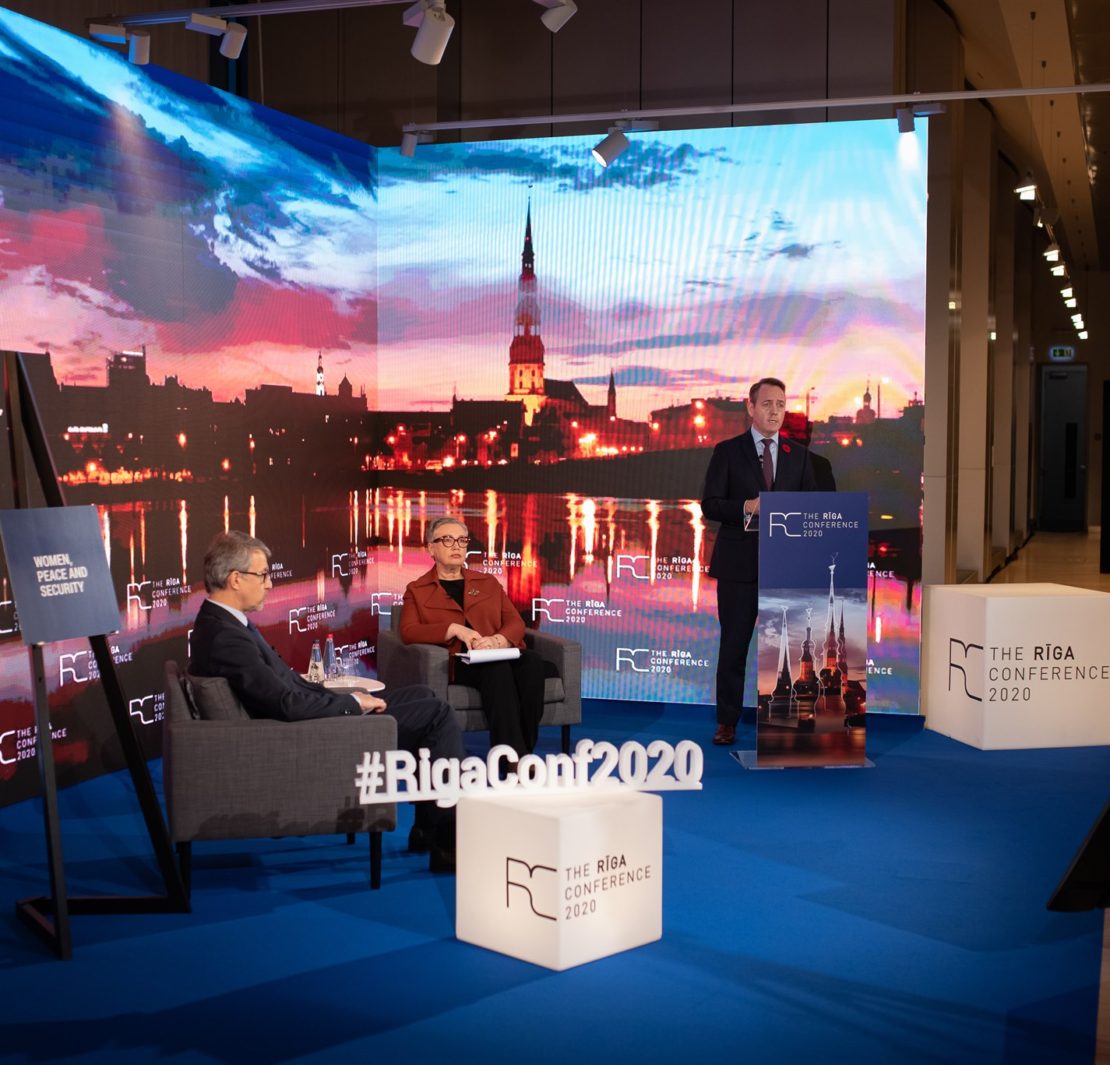Panel Participants:
Jacqueline O’Neill, Canada’s Ambassador for Women, Peace and Security
Clare Hutchinson, Special Representative for Women, Peace and Security at NATO
Kaspars Ozoliņš, Head of Security Policy and Intl. Organisations Directorate
Arvo Anton, Deputy Coordinator for UN Security Council Affairs
Moderator:
Prof. Žaneta Ozoliņa, Chairwoman of the Board of Latvian Transatlantic Organisation
The Women, Peace and Security (WPS) discussion began through questions regarding the need to focus on WPS, and what the role of such initiatives are towards collectively benefiting the transatlantic alliance. Discussants highlighted the critical need to focus on a previously disadvantaged and ultimately underutilized group of people that make up half of the populace as a tool for building sustainable peace and prosperity. In the short term, it is equally important to consider it a crisis prevention mechanism, as there is increasing evidence that the condition of women in nations goes hand in hand with other welfare indicators.
The discussants emphasized the variety of efforts which have been undertaken by different countries, regionally, and in the United Nations. As of 2020, 86 countries have adopted national frameworks on WPS – compared to 19 back in 2010. There is a solid and rising recognition of the WPS agenda around the globe, but progress is slow and narrow with setbacks, with the biggest risk being ease of backsliding. Under Covid-19, it was found that the crisis was having disproportionate impacts on women, which could further disgruntle efforts and have negative long-term consequences. It is important that members of the transatlantic alliance ask how these issues can be resolved and reserved. Discussants agreed that it is necessary to be accountable to existing mandates. This is difficult, as there is still a lack of resources and reprisal mechanisms but the rising support for WPS across the transatlantic alliance and beyond is proof that members of the global community are on the right track.
Moving the talk to NATO, a discussant described the movement of the needle within the organization towards addressing the WPS agenda. Though Resolution 1325 was not made with NATO in mind, the organization has tried to seize and prioritized the gender mainstreaming issues of the Resolution. The recent revision of the WPS policy in 2018 exemplifies the major steps NATO has taken, by introducing three principles. The principle of integration involves incorporating women into defense mechanism and other more complex security capacities. The principle of inclusiveness regards the range of women in different member forces, aiming to have the full range of positions open to women – progress is good, but varies greatly among nations from 3% to over 20%. The last principle is integrity, which regards assessing conduct of behavior. Last year the first policy on preventing sexual exploitation abuse was adopted, demonstrates what behavior should look like.
In discussing how WPS can link to broader formal frameworks of securities, a discussant highlighted that it is no longer possible to isolate WPS as a standalone effort, but that it must be integrated into a variety of initiatives. First, civil society engagement is crucial in the WPS agenda, especially through the lens of the gender mainstreaming efforts under the UN Security Resolution 1325. This involves formally incorporating gender perspectives into government structures, or closer work with NGOs. More activity should be taken to check in on national action plans, even though working across governments remains difficult.
Second, the younger generation remains a concurrent priority. Finding ways to educate and instill the core principles underlying gender mainstreaming in youth is critical to a successful WPS initiative and increased stability in the long-term. However, the way different nations handle this remains very fractured, highlighting different stances among the transatlantic alliance. Though it is important to work across the spectrum and society holistically, more effort can be dedicated to reaching agreement on WPS efforts at the high-level regionally. Discussants highlighted that any discussions on WPS must be careful to highlight that WPS is not a western construct, but a result of a global movement.
Third, to attempt to formalize WPS – it must be measured, which is proving very difficult especially as many initiatives are still nascent. To understand the success of an initiative as holistic as WPS, governments must go beyond measuring narrow static measurements and attempt to broaden the area of investigation to include measurement in policy and behavioral changes in a variety of communities and national subgroups on integration and inclusion.
The discussion culminated with agreement on a few key aspects. It is critical to work on strengthening civil society domestically and incorporate WPS in education, training, and other awareness raising efforts. Similarly, NATO, EU, and the Baltic States must coordinate those efforts. Though there may be many top-down agendas within these organization, the transatlantic alliance must remember the role of transferring best practice directly between countries and organizations to build WPS from the bottom-up. The role of partnerships is also important, not only between international organizations, but also civil organizations, built with local communities and those engaged in peacemaking processes. Last, but not least, for these measures and efforts to be traceable, metrics must be continuously expanded.

